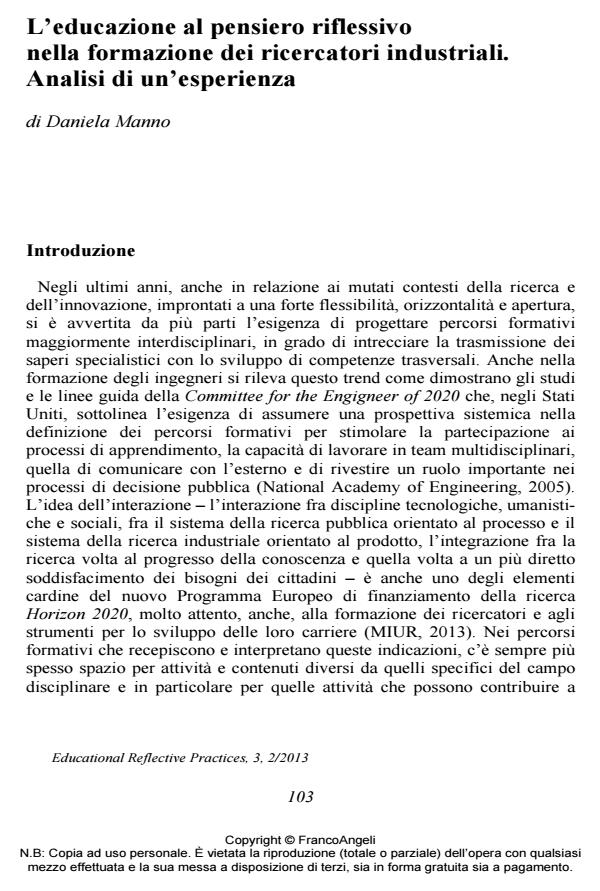L’educazione al pensiero riflessivo nella formazione dei ricercatori industriali. Analisi di un’esperienza
Journal title EDUCATIONAL REFLECTIVE PRACTICES
Author/s Daniela Manno
Publishing Year 2014 Issue 2013/2
Language Italian Pages 20 P. 103-122 File size 575 KB
DOI 10.3280/ERP2013-002007
DOI is like a bar code for intellectual property: to have more infomation
click here
Below, you can see the article first page
If you want to buy this article in PDF format, you can do it, following the instructions to buy download credits

FrancoAngeli is member of Publishers International Linking Association, Inc (PILA), a not-for-profit association which run the CrossRef service enabling links to and from online scholarly content.
The present article aims at contributing to the debate on thinking education in organizational contexts with particular reference to the training of professionals in the field of industrial research. We propose an analysis of an educational experience, conducted in a workshop through the application of various devices of thinking education, which are different in both their theoretical templates and their specific objectives: the Community of Philosophical Inquiry, according with Lipman's Philosophy for Children; the methods of creative logical problem solving, following the approach of de Bono's Lateral Thinking; and some analytical activities on perceptive-evaluative habits, from the perspective of experimental phenomenology. In the first part of this article we present the context in which the set-up of the educational experience has grown, as well as the rationale for choosing the training devices; in the second part, by analysing the reports prepared by the workshop participants, we analyse the effectiveness of the workshop set-up and the potential for combined use of the chosen devices, in order to reach, in an extremely short amount of time, a process of progressive growth in participants’ thinking skills that can affect the definition of the researcher’s professional identity and the transformation of such an identity in a lifelong-learning perspective
Daniela Manno, L’educazione al pensiero riflessivo nella formazione dei ricercatori industriali. Analisi di un’esperienza in "EDUCATIONAL REFLECTIVE PRACTICES" 2/2013, pp 103-122, DOI: 10.3280/ERP2013-002007